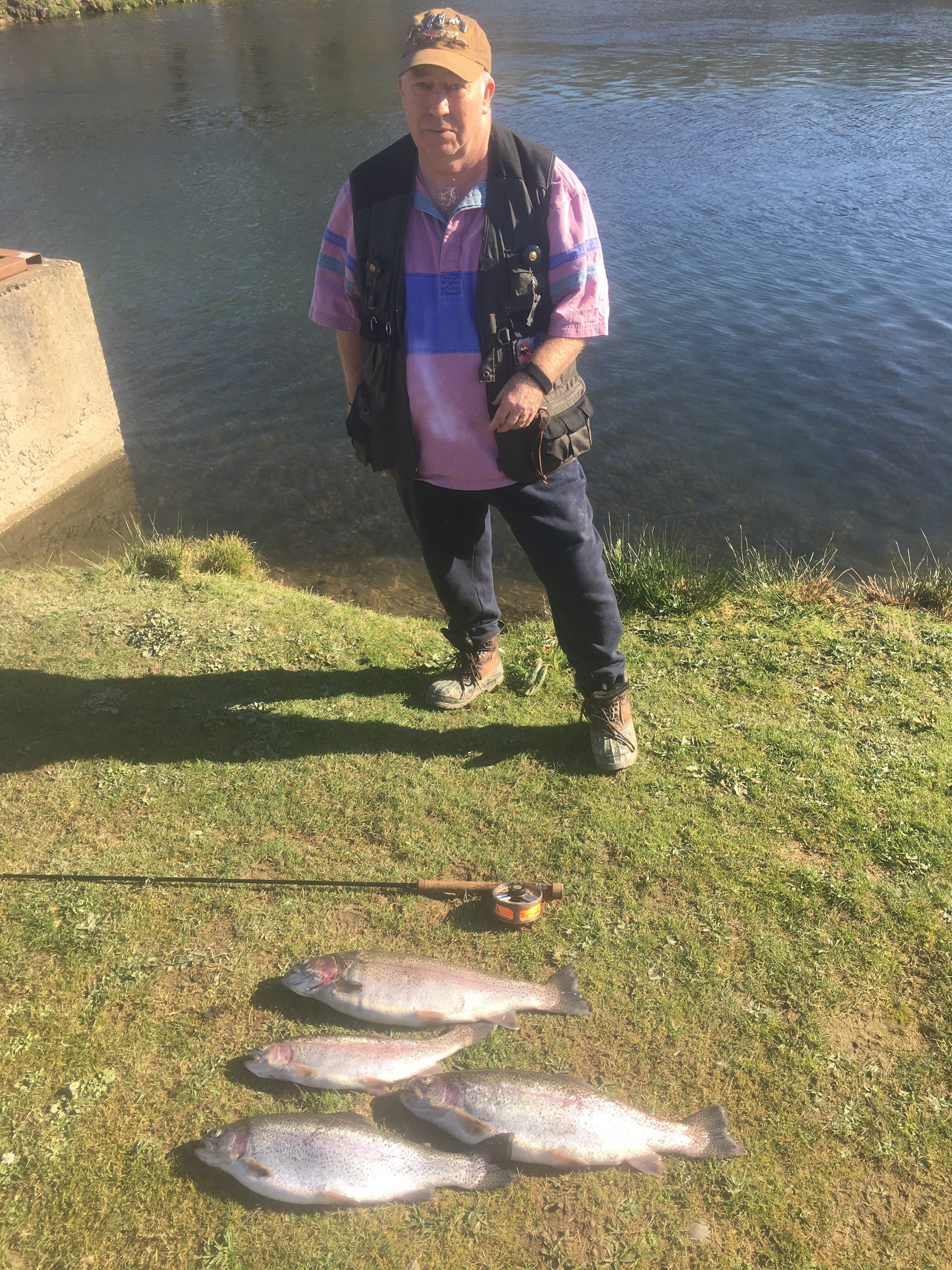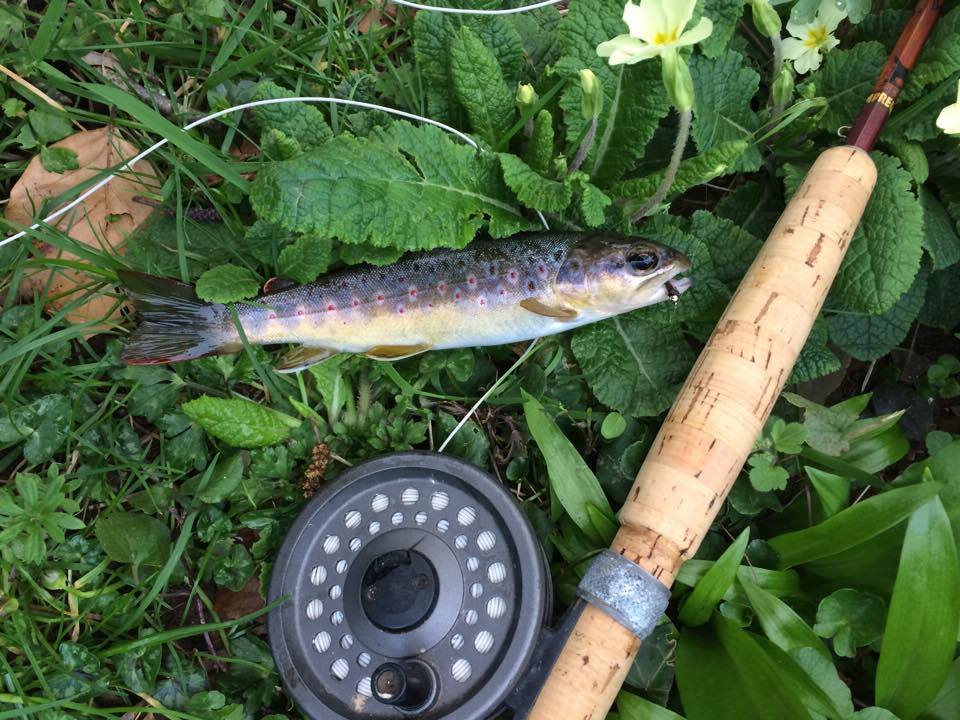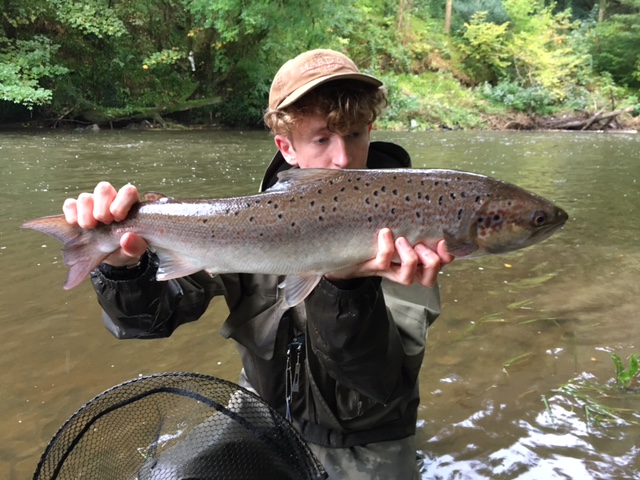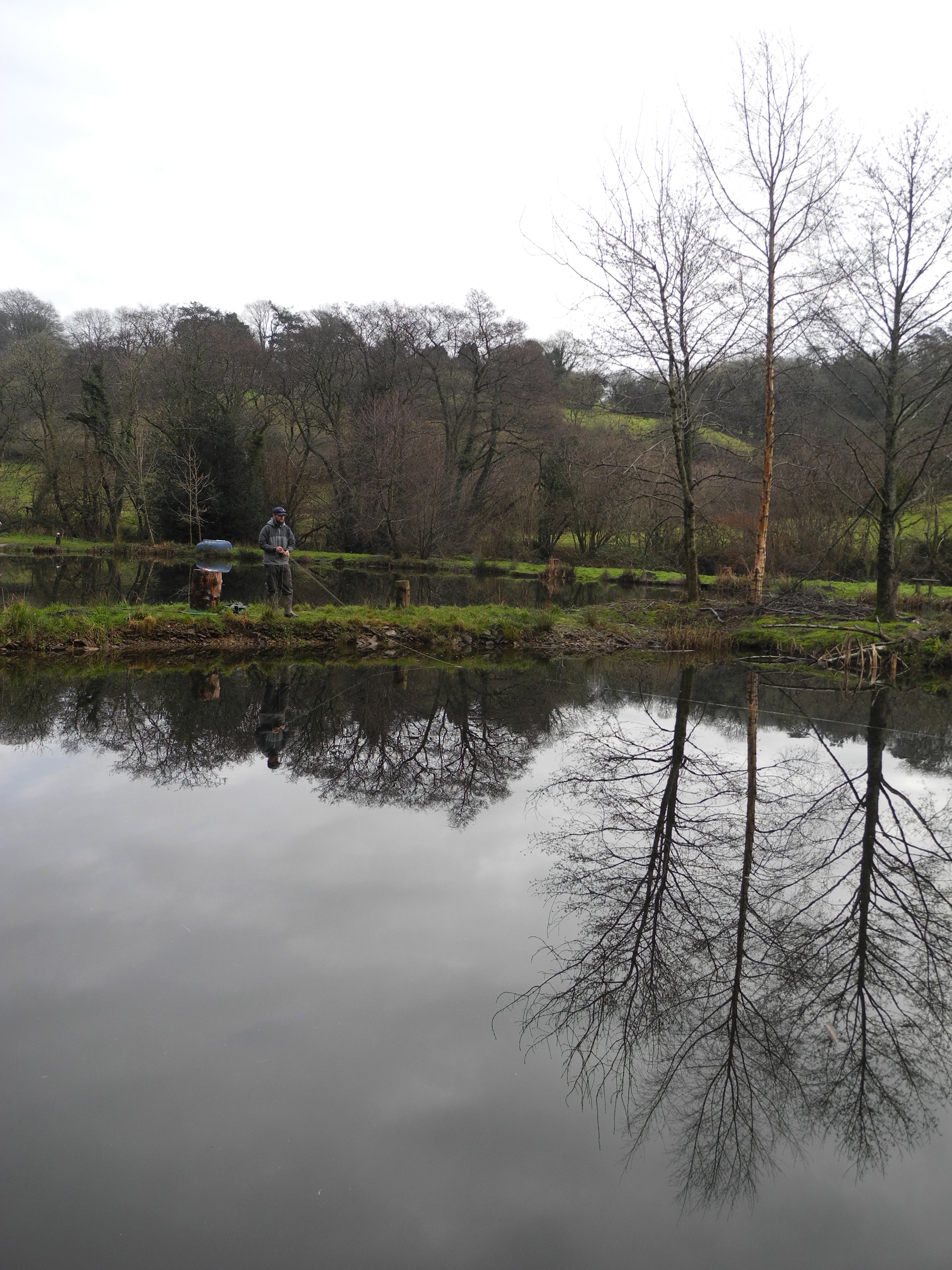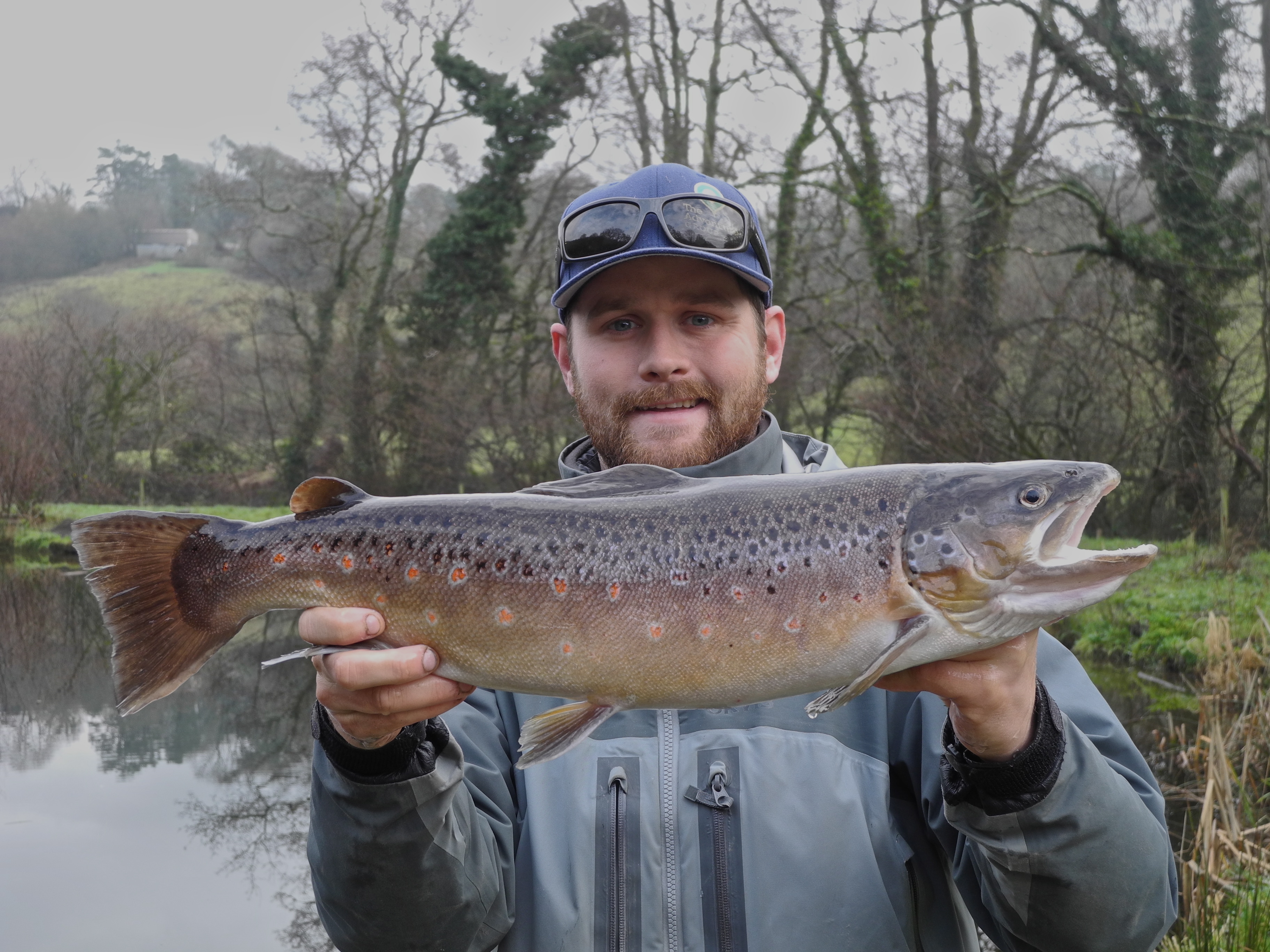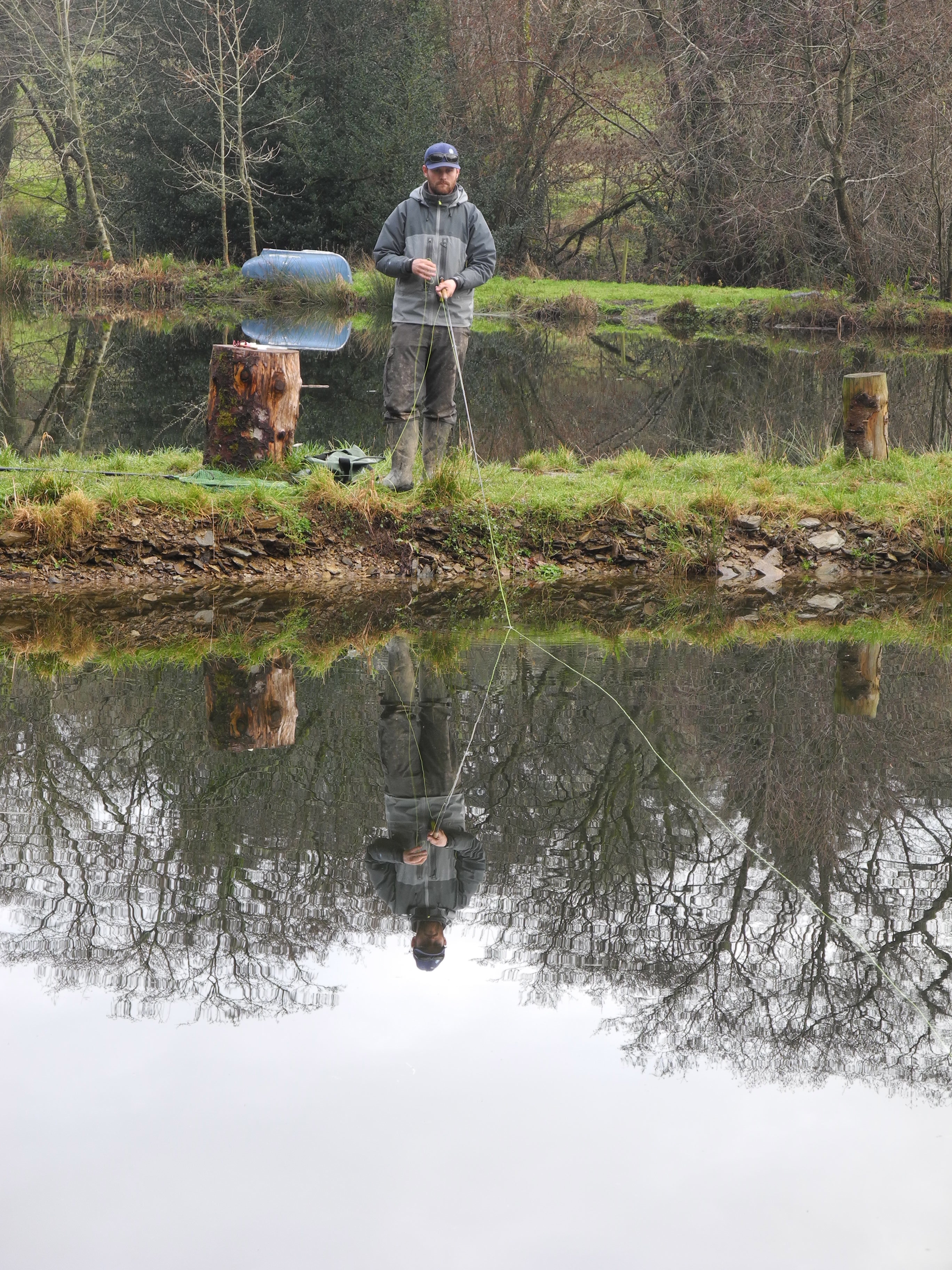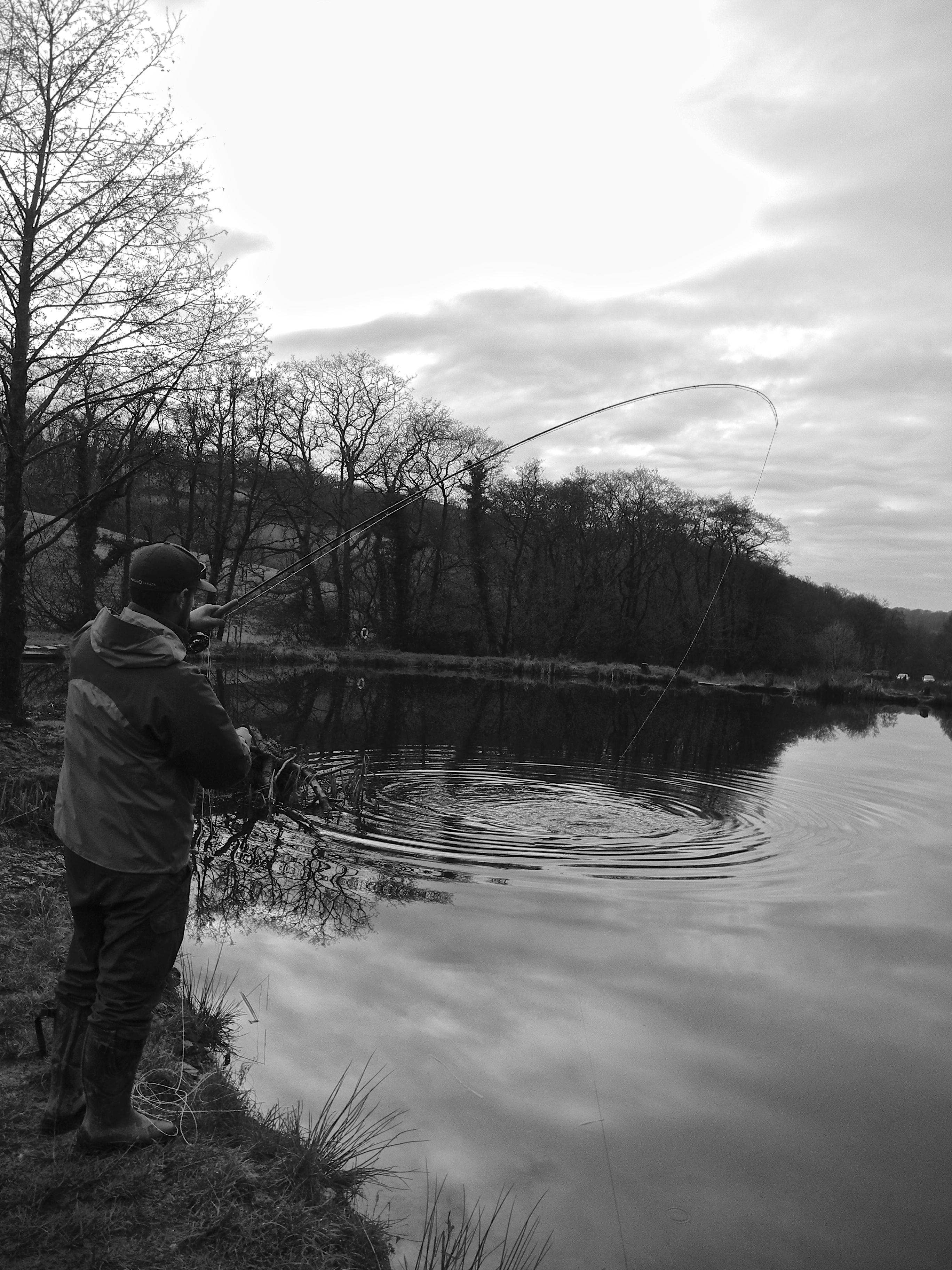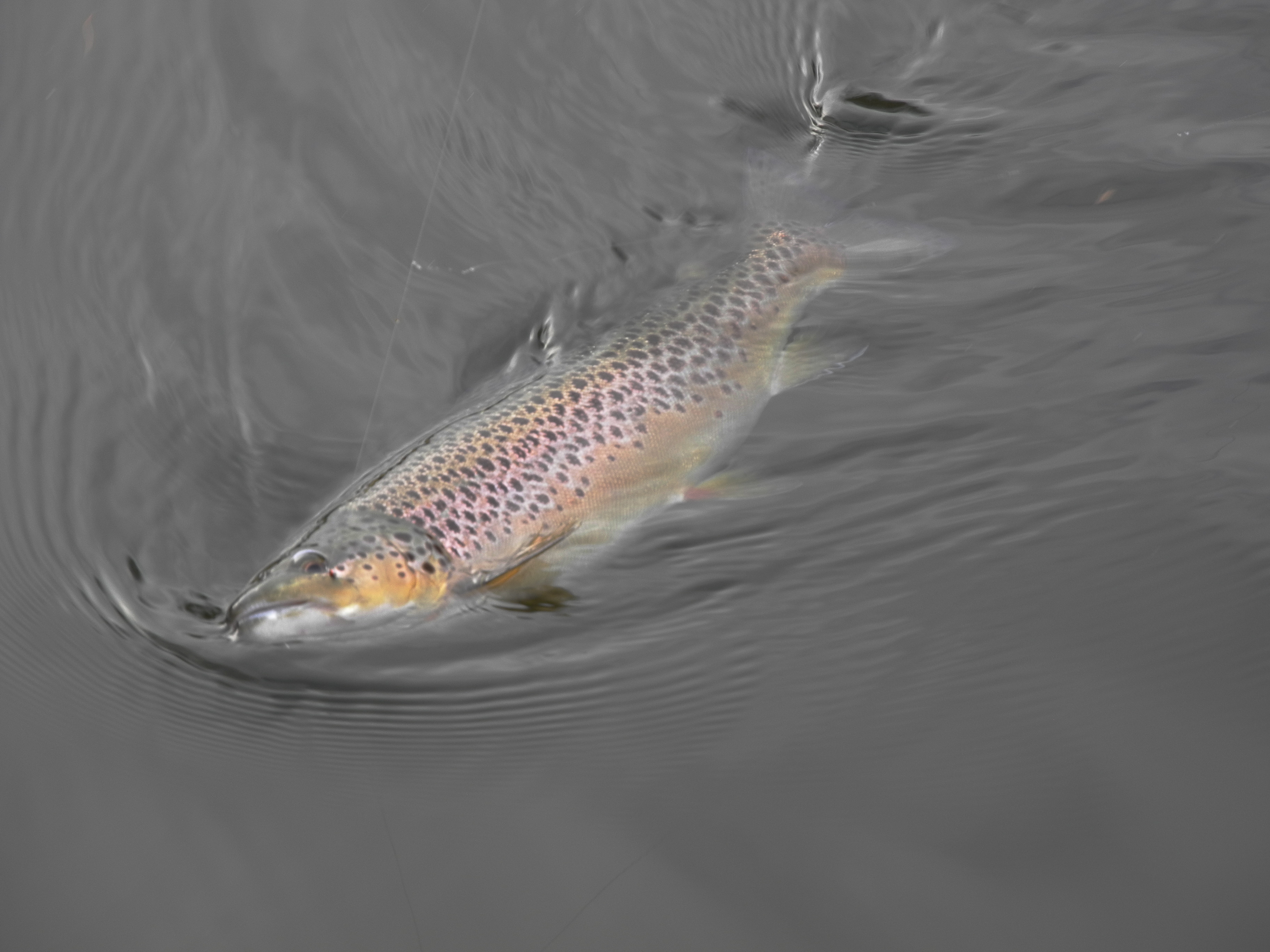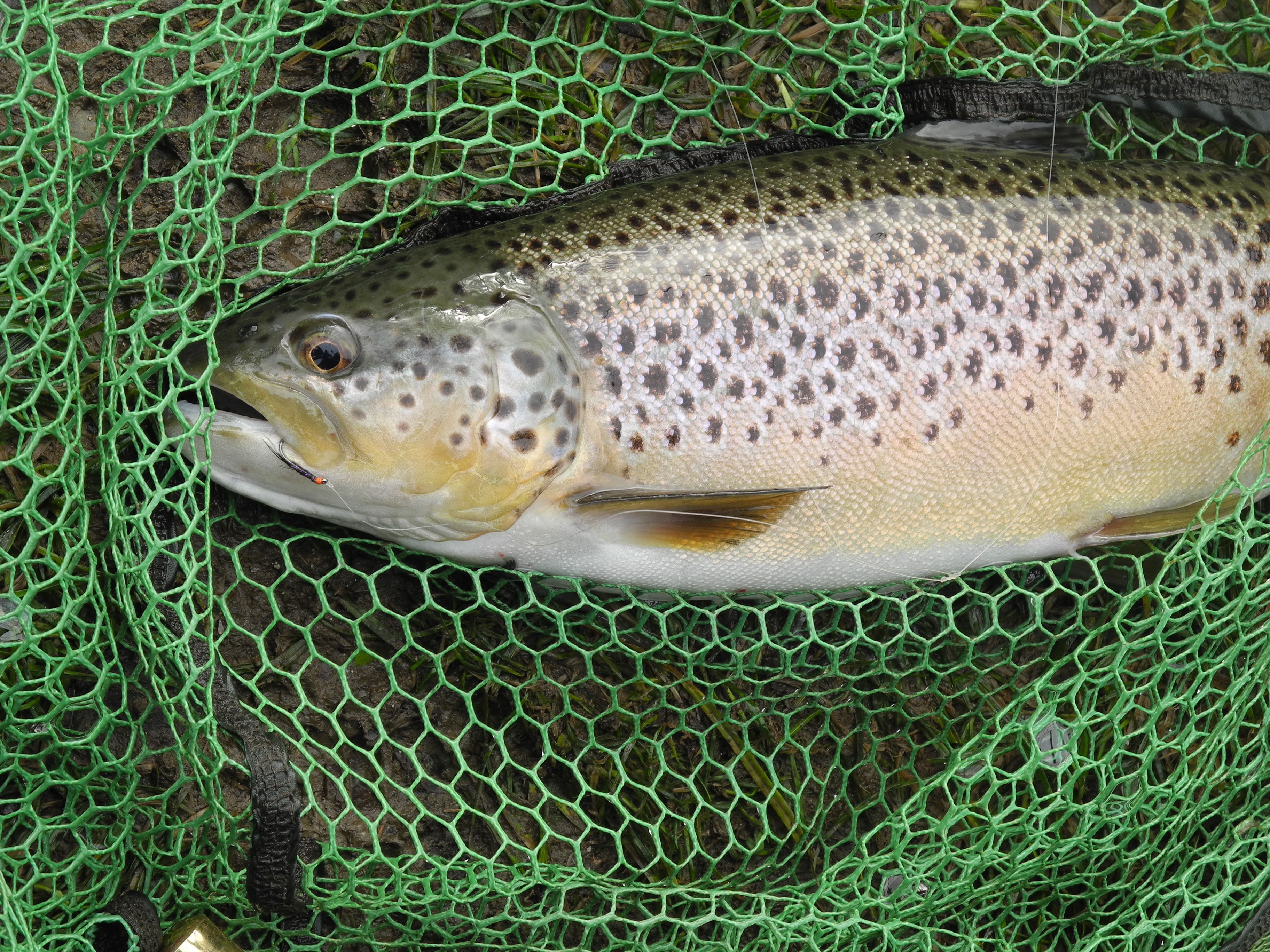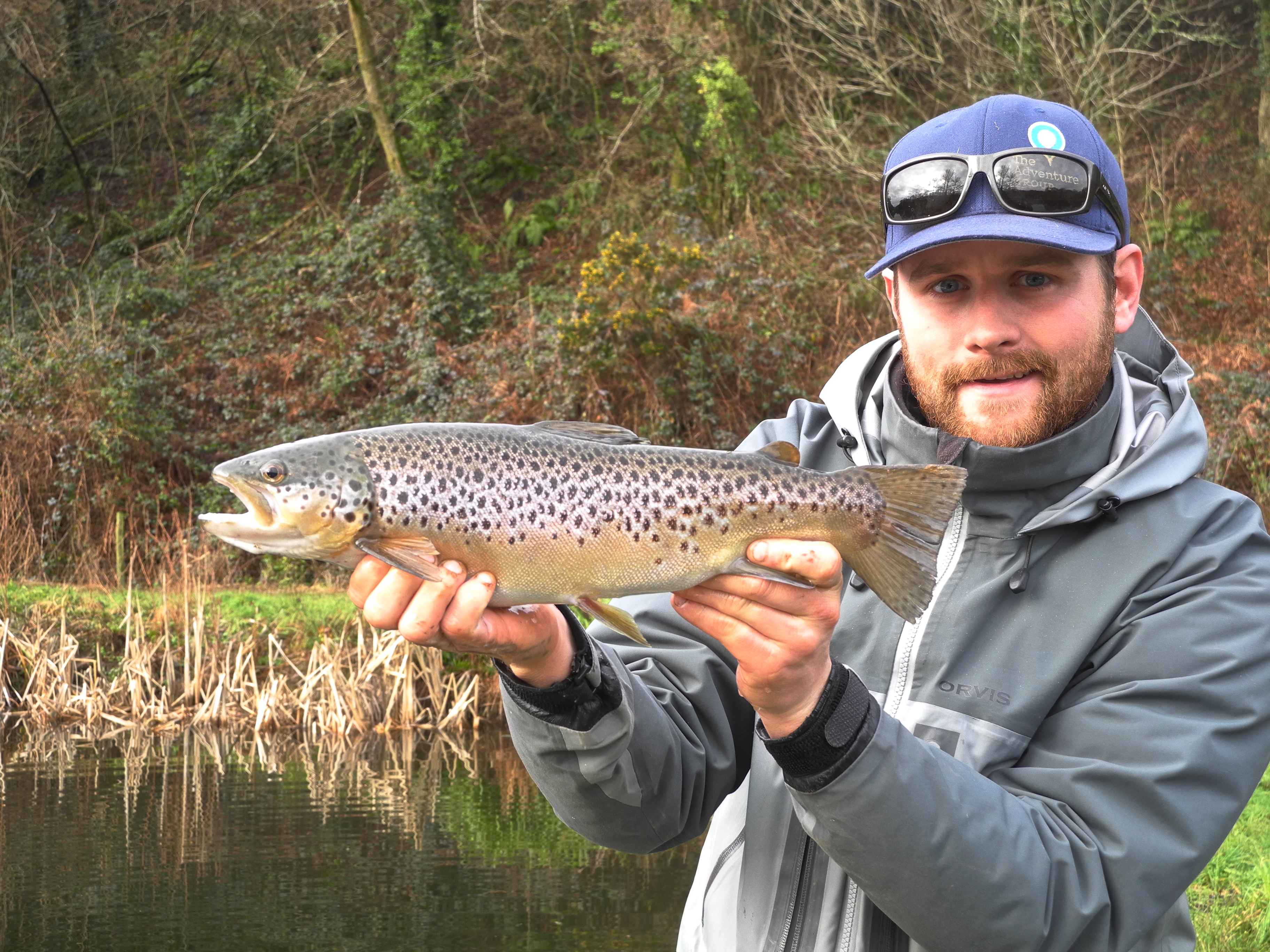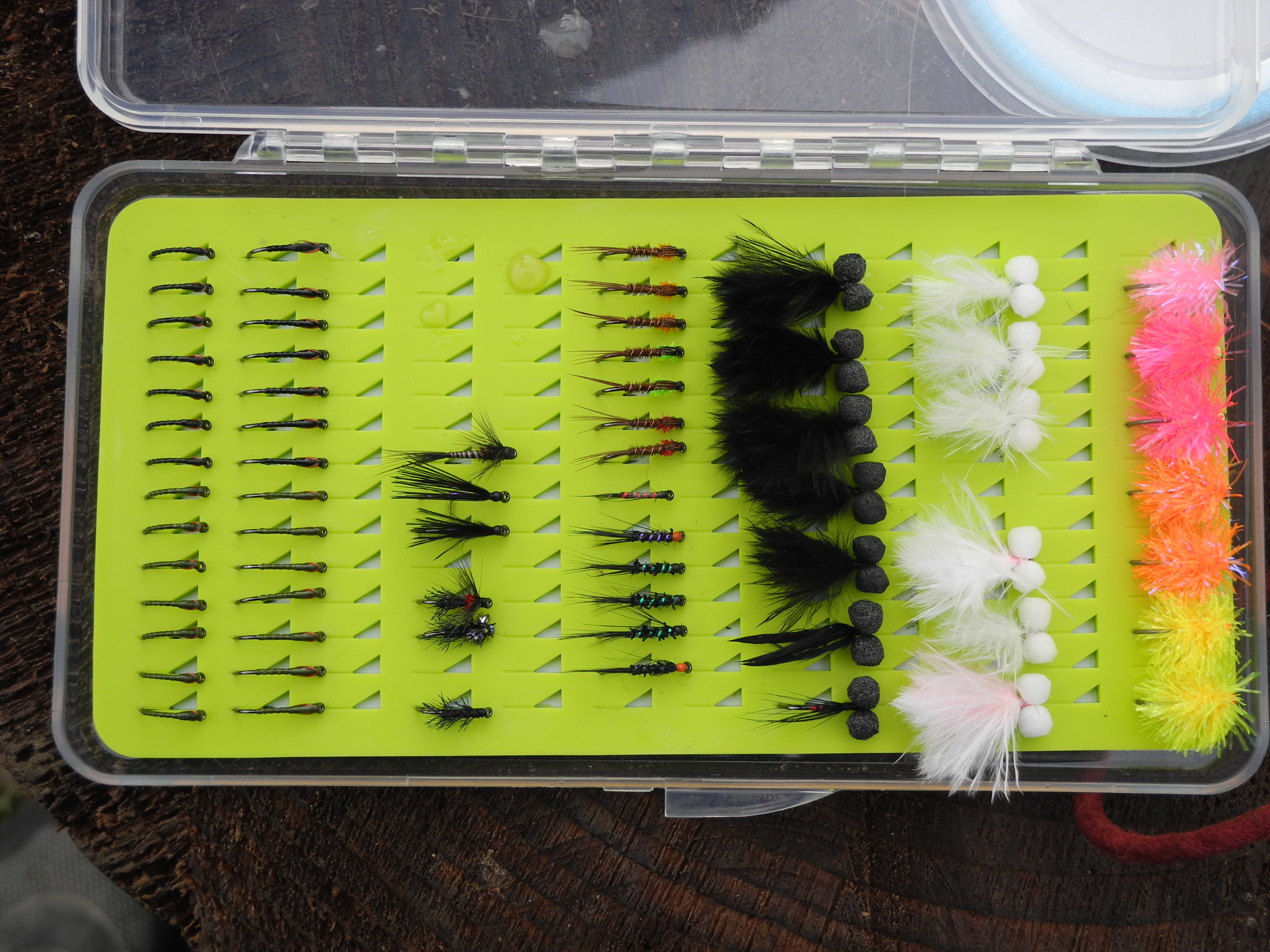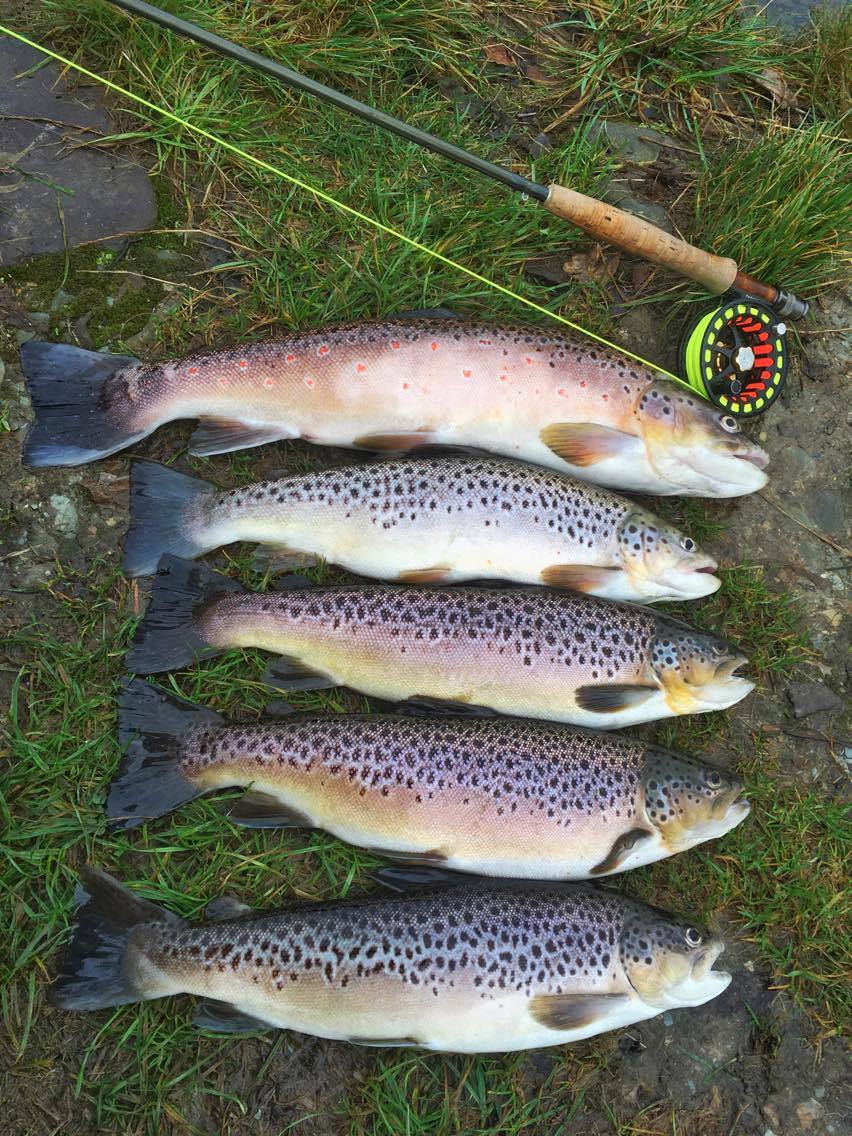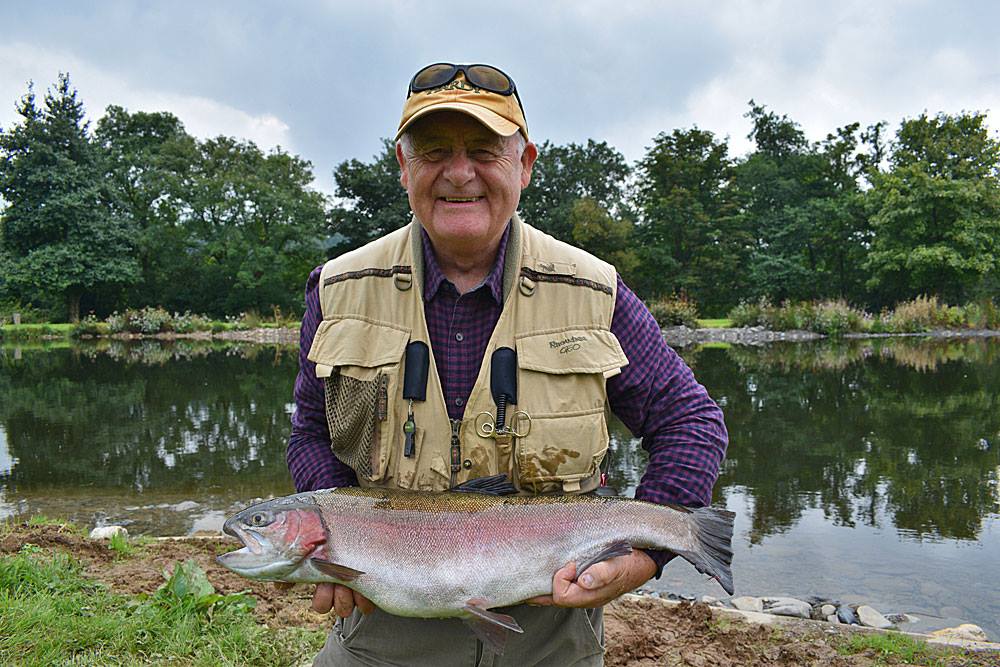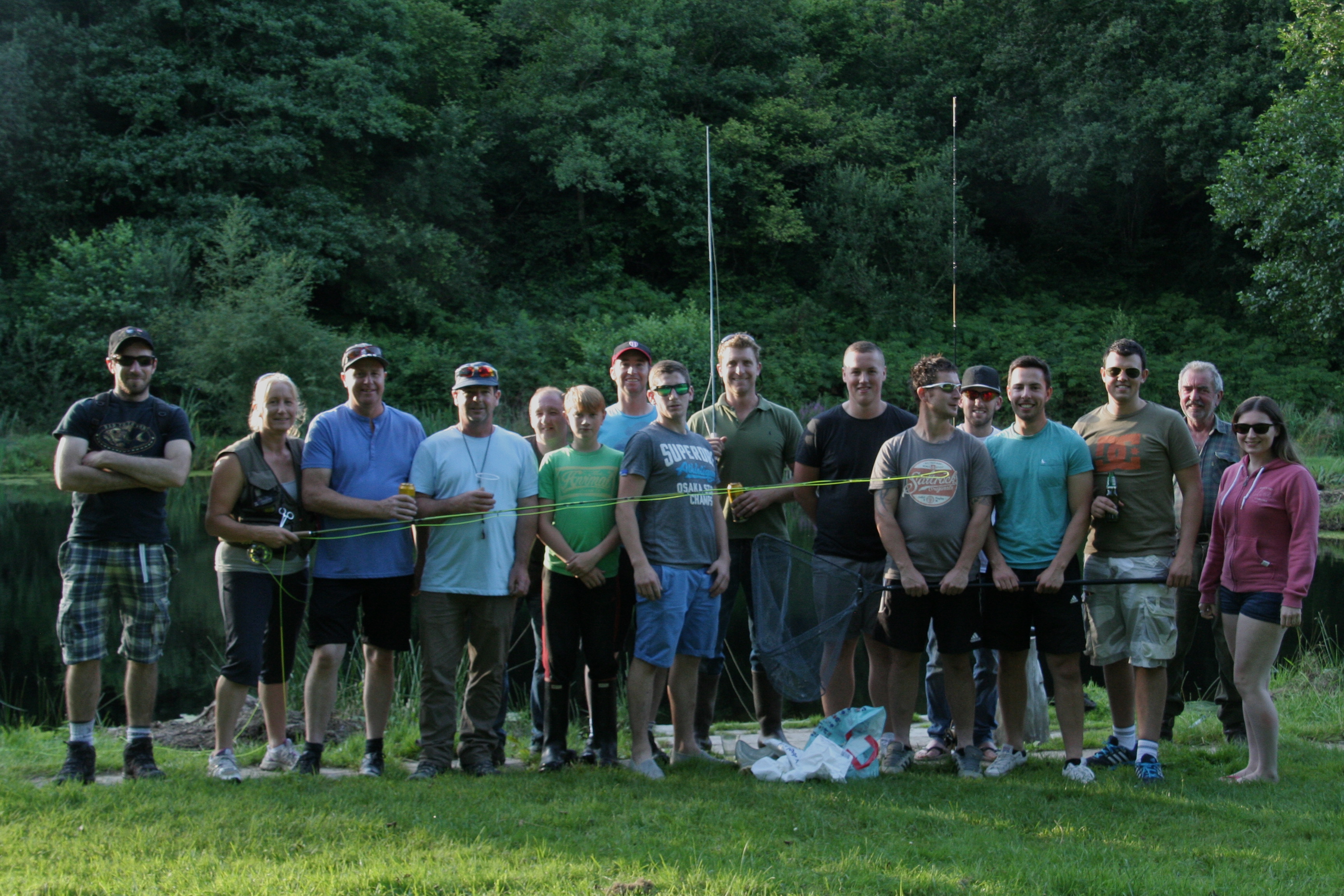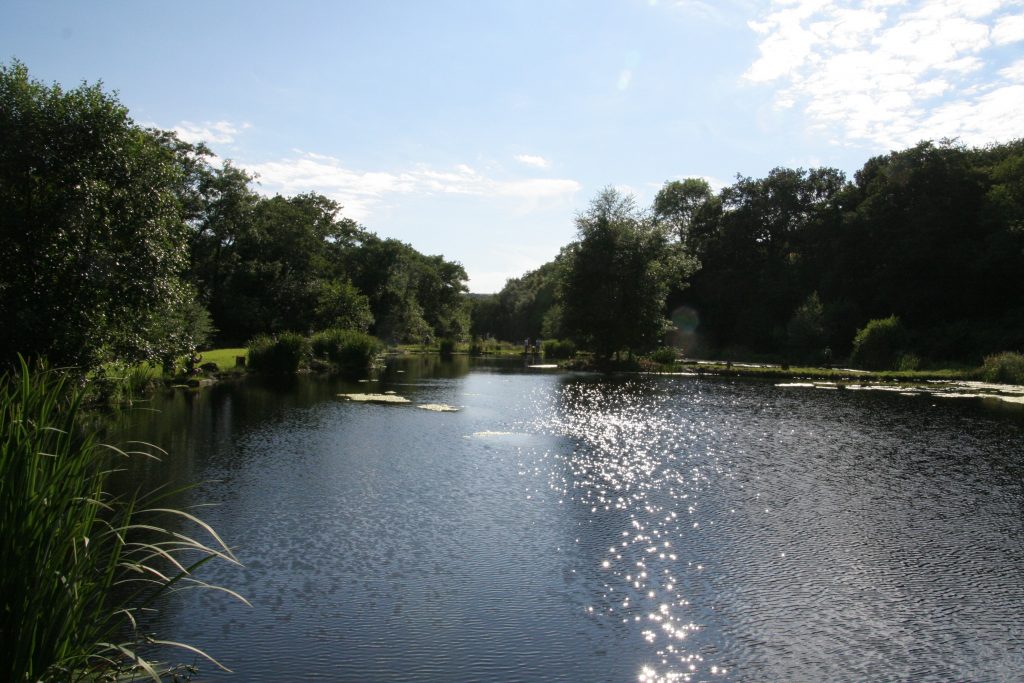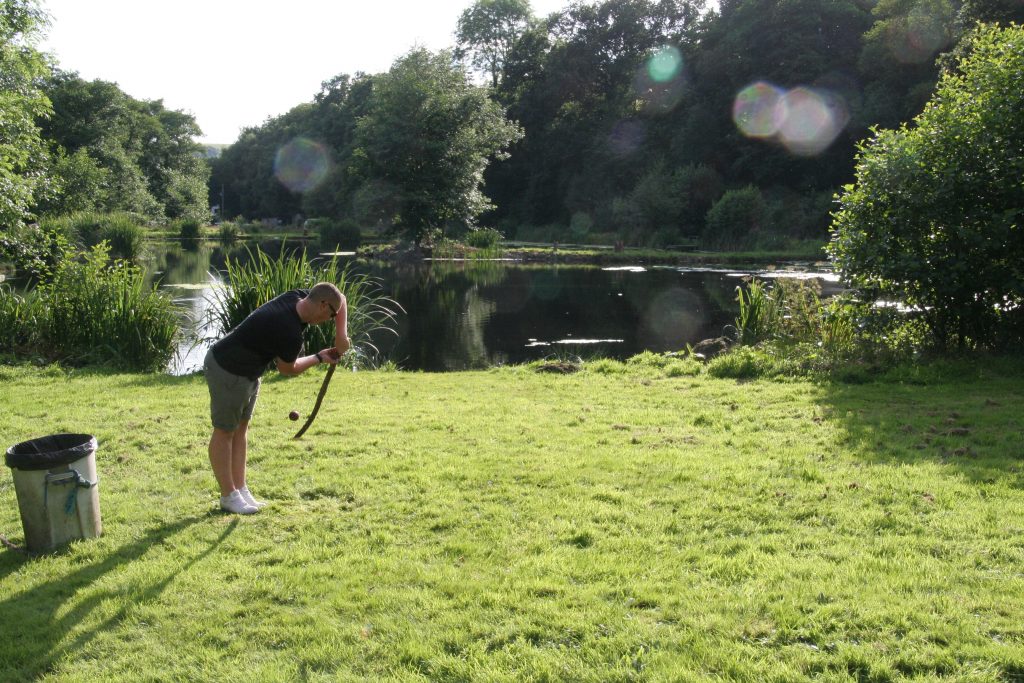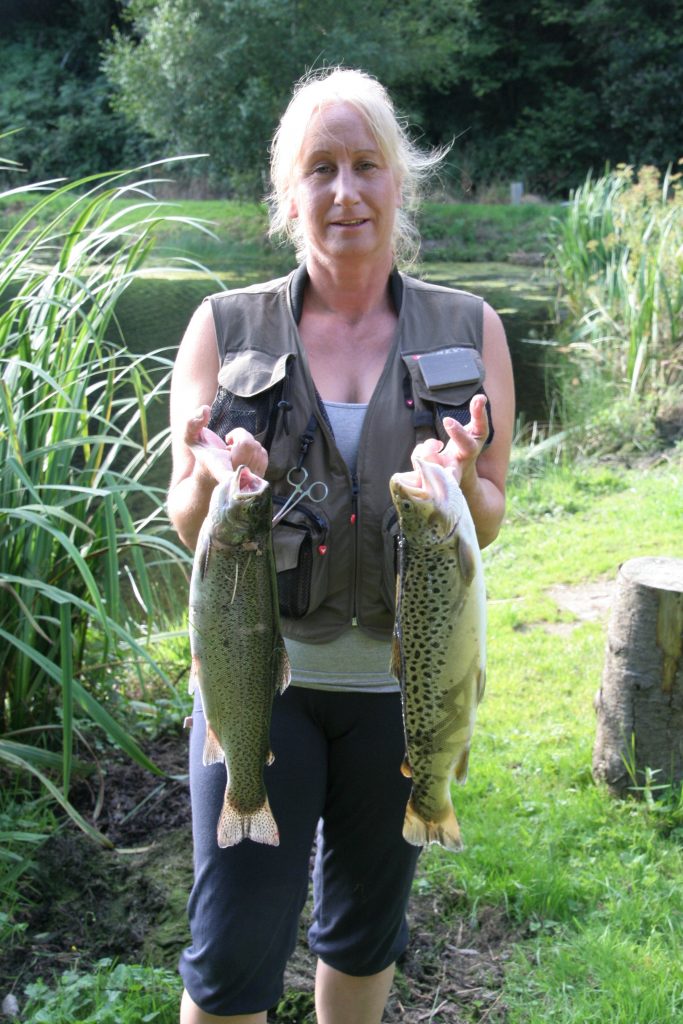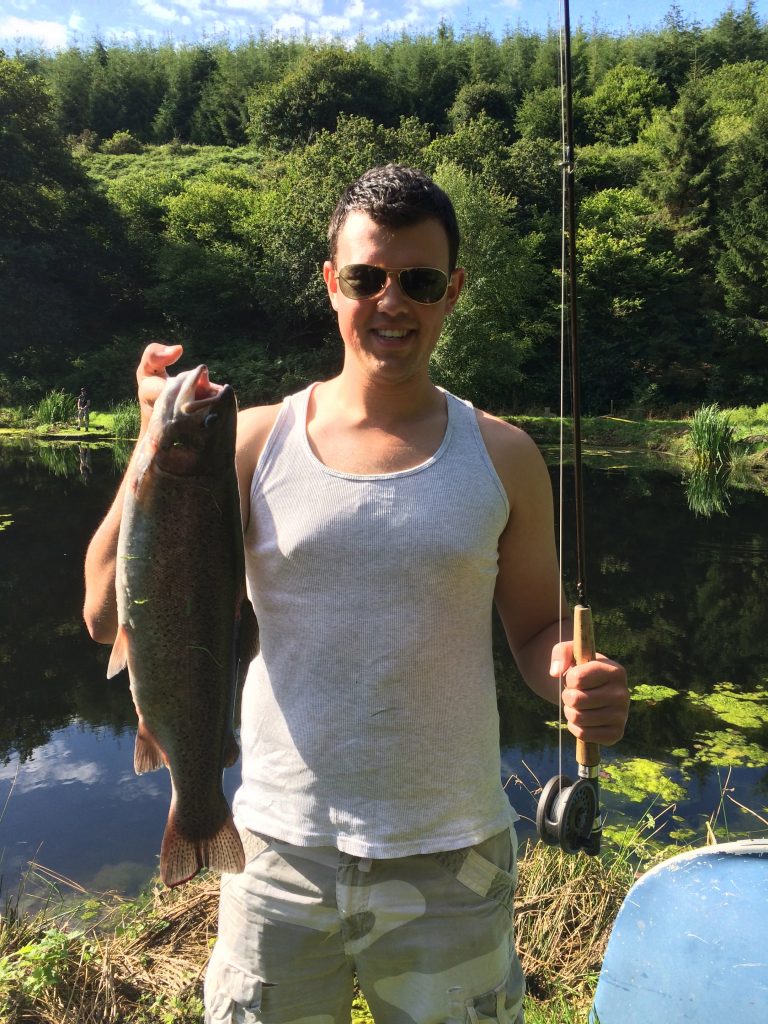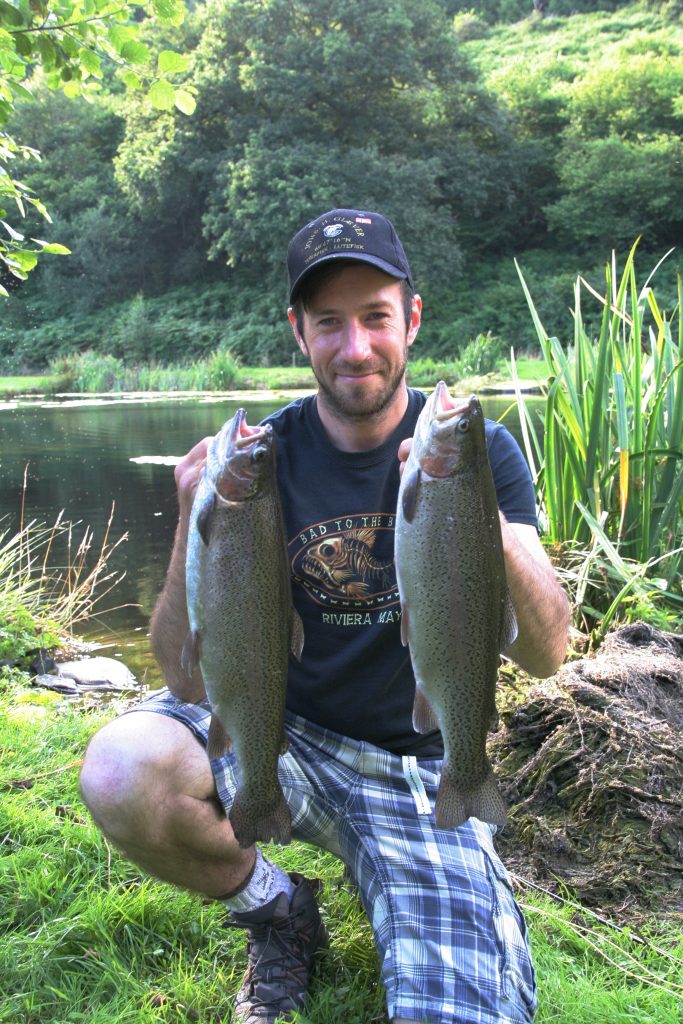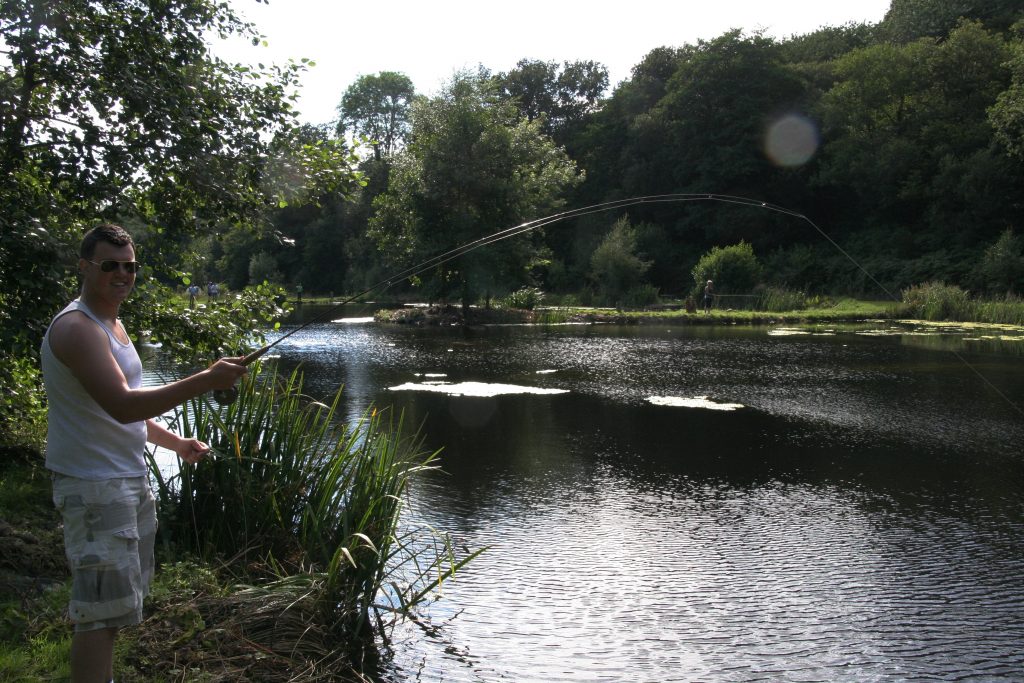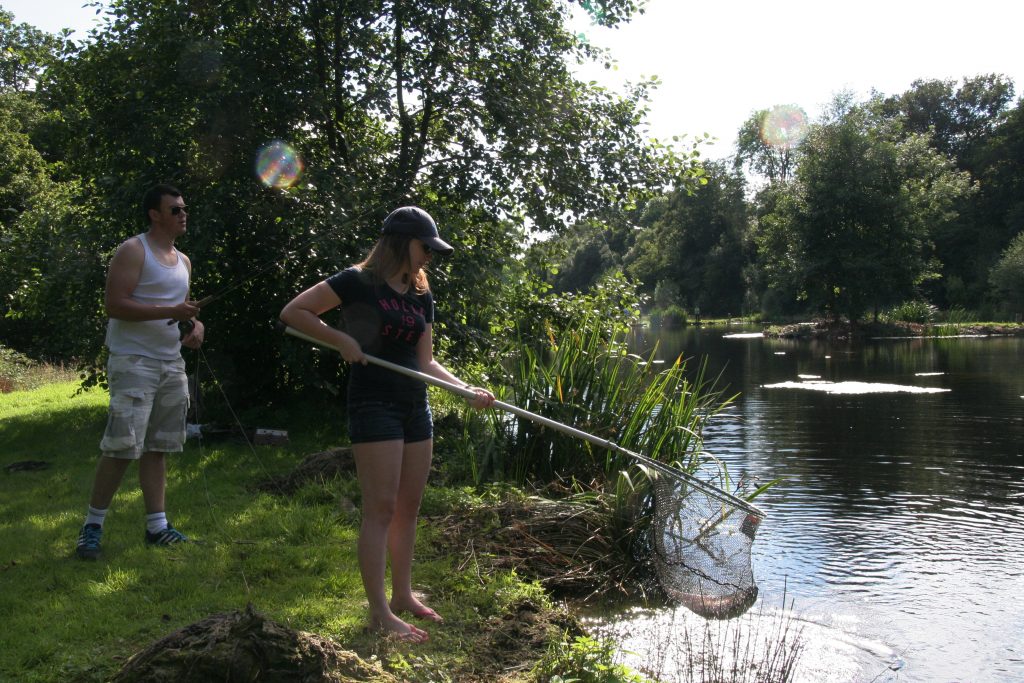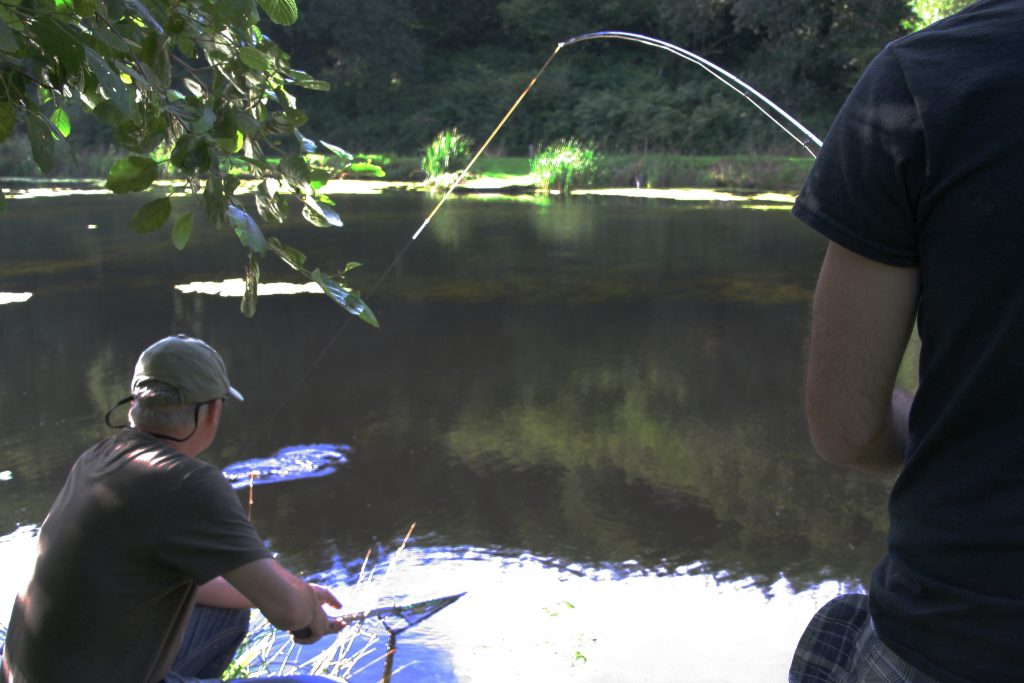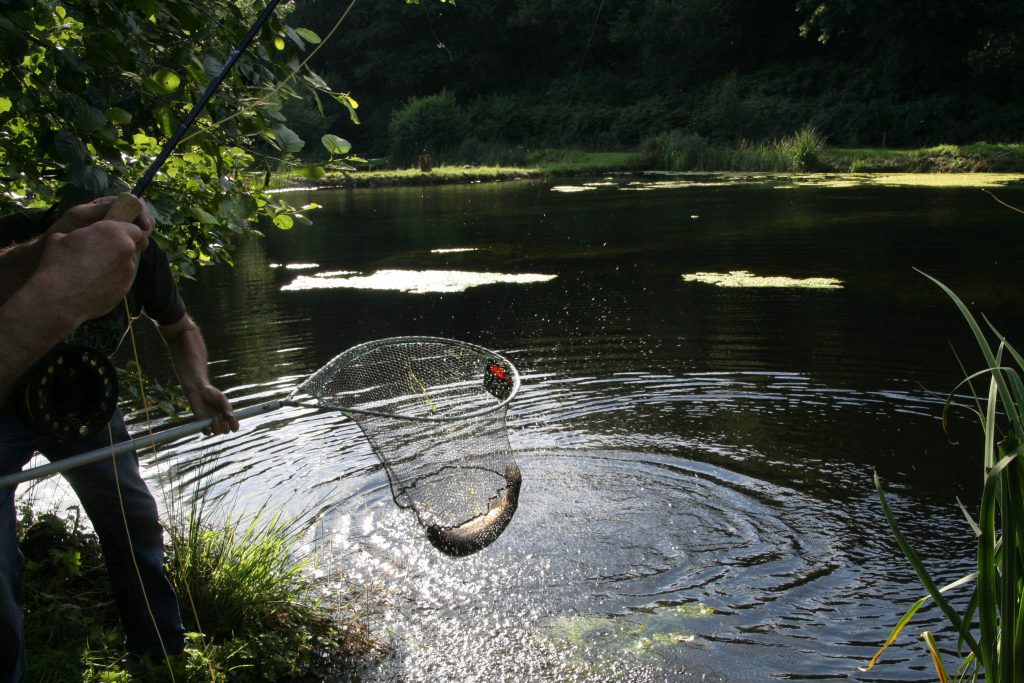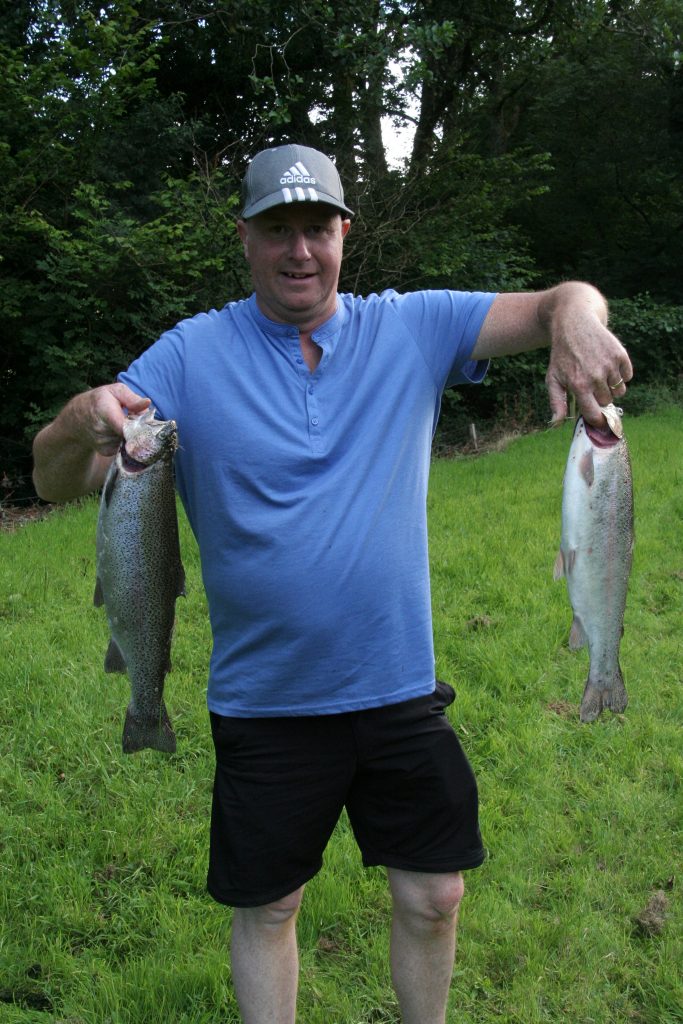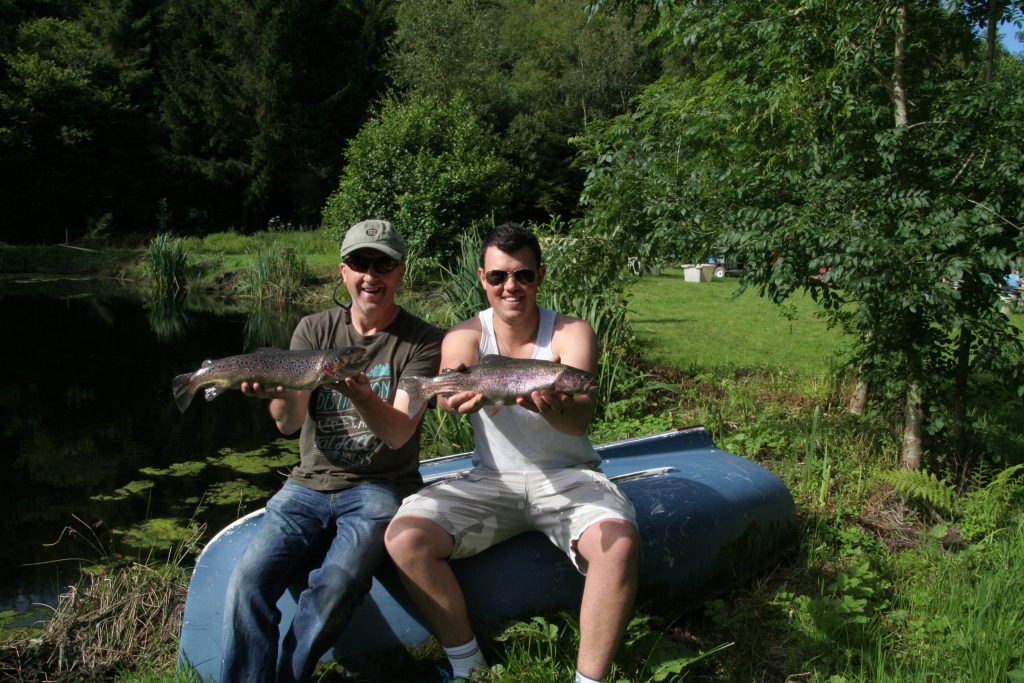 Congratulations to Matt Kingdon on winning South West Lakes Trust’s Best of the Best competition at Wimbleball. Full report below from Ben Smeeth of South West Lakes Trust
Congratulations to Matt Kingdon on winning South West Lakes Trust’s Best of the Best competition at Wimbleball. Full report below from Ben Smeeth of South West Lakes Trust
Matt Kingdon has won the Best of the Best £5000 final at Wimbleball Lake held on 18 September after being the only angler to catch a limit of 10 fish. The competition, now in its third year, is run by South West Lakes Trust and sponsored by Snowbee (www.snowbee.co.uk).
Matt, from Barnstaple, bagged his limit with more than an hour to go from the Bessoms Bridge area of the lake. Successful tactics were a team of three flies consisting of a Peach Blob on top, a Red Holographic Cruncher in the middle and a Black Lure with Malibu Tail and a Green Sparkled Body with Red Rib on the bottom fly. A slow to medium retrieve to jerk the Malibu Tail accounted for seven of Matt’s ten fish. He collected £2000 for the win, following on from his third place finish where he won £1000 in the 2015 final. It completes a great week for Matt who qualified for the Home International Loch style in 2017.
57 anglers fished the final after 92 had qualified throughout the season from Kennick, Wimbleball, Stithians, Siblyback and Burrator. After the briefing was done, there was a mad dash for the favoured fishing spots with most anglers opting for Bessoms and Ruggs end of the lake. The weather conditions were pretty good with a slight ripple on the water, overcast mainly but warm sunny spells at times. A lot of fish were showing out of casting range and catches were much slower than the previous week which was expected after the pressure from anglers practising.
Rob Gale, from Ashburton, finished second catching eight fish from the Narrows to claim the £1250 prize pot with Alec Hoare, Newton Abbot, claiming the £750 third place with seven fish for 11lb 4oz with only 5 ounces separating fifth place from third!
There was a strong Kennick Fly Fishers Association showing at the top of the individual standings with the top five finishers all members. After winning it the last two years Andrew Gooding finished a creditable 8th.
The largest fish in the final (not finishing in the top three) was won jointly by Mike Stone (Starcross) and Roger Truscott (Liskeard) who shared the £500 prize fund with a Rainbow of 2lb 2oz each.
The blind pairs was introduced this season and the winners, claiming £150 each, were Matt Kingdon and Steve Ebdon (Exeter) with Rob Gale and John Huckings (Camelford) finishing second to win £100 each.
There were 127 Rainbows caught in total giving a 2.3 rod average per person for the competition with a further 30 Browns also caught and released.
Simon Kidd from Snowbee was on hand to give out the prizes and here is the full list of prize winners:

| POSITION |
PRIZE |
| Winner – Matt Kingdon 10 fish for 15lb 6oz |
£2000 BOB trophy and name on the honours board in the permit room |
| Runner up – Rob Gale 8 fish for 13lb 4oz |
£1250 BOB trophy and name on the honours board in the permit room |
| Third – Alec Hoare 7 fish for 11lb 4oz |
£750 BOB trophy and name on the honours board in the permit room |
| Heaviest Fish (not finishing in the top three) Mike Stone and Roger Truscott 2lb 2oz |
£250 each |
| Second heaviest fish (not in top three) Andy Watson 2lb 1oz |
Snowbee Fly Vest and Back pack worth over £100 |
| Blind Pairs winners: Matt Kingdon and Steve Ebdon 18lb 12oz |
£150 each |
| Blind Pairs runners up: Rob Gale and John Huckings 17lb 15oz |
£100 each |
| 4th – Andy Watson 7 fish for 10lb 15oz (won on countback with largest fish 2lb 1oz) |
Snowbee 9ft #6 Geo Nano rod worth £350 |
| 5th – Paul Wicks 7 fish for 10lb 15oz |
New Snowbee Classic Fly rod worth over £200 |
| 6th – Pete Kempton 6 fish for 9lb 11oz |
Snowbee stripping basket worth £50 |
| 7th – Nick Tompkins 5 fish for 7lb 9oz |
Snowbee Slim Line fly box kit worth £40 |
| 8th – Andy Gooding 5 fish for 7lb 8oz |
Snowbee Slim Line fly box kit worth £40 |
| 9th – Dave Perks 5 fish for 7lb 6oz (won on countback with largest fish 1lb 12oz) |
Snowbee Competition Fly Box worth nearly £30 |
| 10th – Tony Chipman 5 fish for 7lb 6oz |
Snowbee easyvue competition fly box worth £20 |
| QUALIFYING PRIZES |
|
| Heaviest fish Wimbleball – Howard James 6lb 8oz |
Snowbee Fly Line worth £50 |
| Heaviest Fish Kennick – Mark Brimblecombe 7lb 6oz |
Snowbee Fly Line worth £50 |
| Heaviest Fish Burrator – Allan Lawson 5lb |
Snowbee Fly Line worth £50 |
| Heaviest Fish Siblyback – Duncan Kier 6lb 8oz |
Snowbee Fly Line worth £50 |
| Heaviest Fish Stithians – Nigel Burley 6lb 11oz |
Snowbee Fly Line worth £50 |
The top three will also have their names engraved onto the honours board in the permit room at Wimbleball.
A huge thank you to all of the Marshalls, especially Danny Ford for all his work leading up to and during the competition and also the sponsor Snowbee who very generously donated over £1000 worth of prizes.
Ben Smeeth
Technical Lead for Fishing


